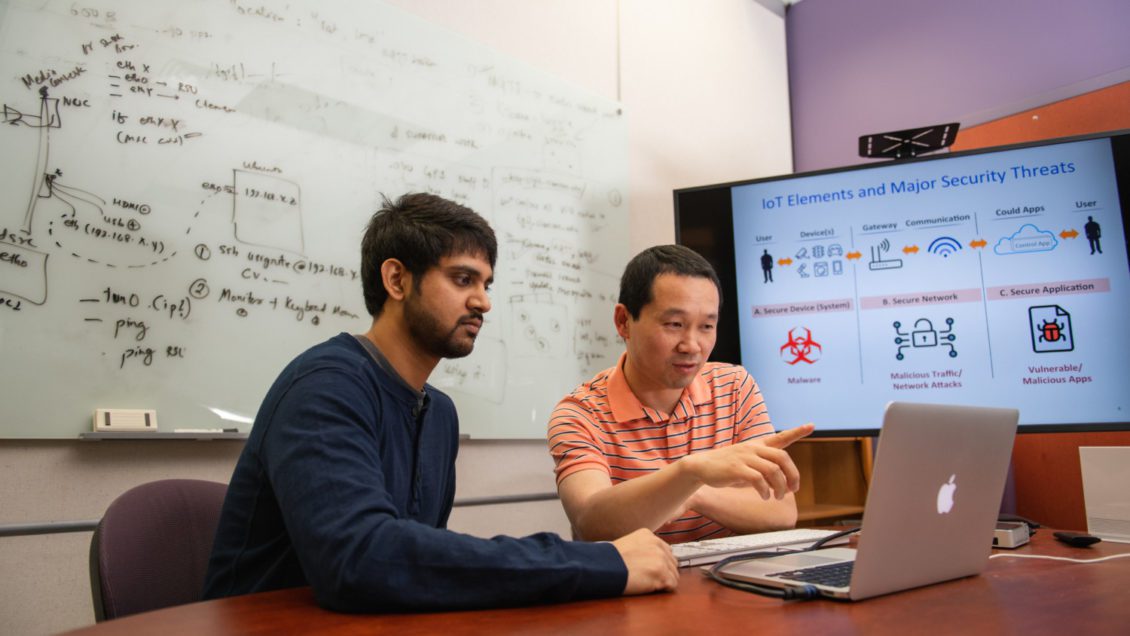Hongxin Hu of Clemson University is developing new security functions to protect computer networks from attacks, as each day brings another round of news about hackers exposing sensitive data.
The new security functions include a virtual intrusion detection system that would detect attacks and a virtual firewall system that would repel them. A $500,000 CAREER award from the National Science Foundation is funding the project.

“We need to protect our critical network infrastructure,” said Hu, an assistant professor and Dean’s Faculty Fellow of Computer Science. “For my CAREER award, we will build virtualized network security functions, including a new-generation intrusion detection system and a new-generation firewall system, with features of flexibility and elasticity, and that are well suited to protect emerging programmable and virtualizable network environments.”
Those security functions could be used in huge cloud-based data centers or small smart-home networks that link together common devices, such as laptops and smart appliances, Hu said.
Once created, the new security functions will be made available for free to the public on an open-source platform, OpenNSFV. Anyone who wishes will be able to extend the platform, tailoring it for specific purposes, he said.
Hu hopes to have OpenNSFV ready to release within three years.
Amy Apon, the C. Tycho Howle Director of the School of Computing, congratulated Hu on his CAREER award.
“Dr. Hu’s extensive background in network security makes him ideally suited for this research,” Apon said. “The CAREER award is among the nation’s highest honors for junior faculty members, and Dr. Hu richly deserves it.”
The research builds on two emerging networking technologies, Network Function Virtualization (NFV) and Software-Defined Networking (SDN). Both technologies figure heavily into an education plan Hu has created as part of his CAREER award.
The plan calls for Hu and his team to design hands-on labs related to this project for NFV/SDN security and develop a cloud-based open laboratory based on CloudLab to support those labs nationwide. Students, whether at Clemson or elsewhere, will be able to use the cloud-based lab for free to conduct experiments.
Hu also plans to develop hands-on course materials for undergraduate and graduate students. And Hu said he will reach out to the K-12 system, leveraging the connections he’s made. For instance, three high school students and one middle school student have worked as interns in his lab.
Get in touch and we will connect you with the author or another expert.
Or email us at news@clemson.edu

